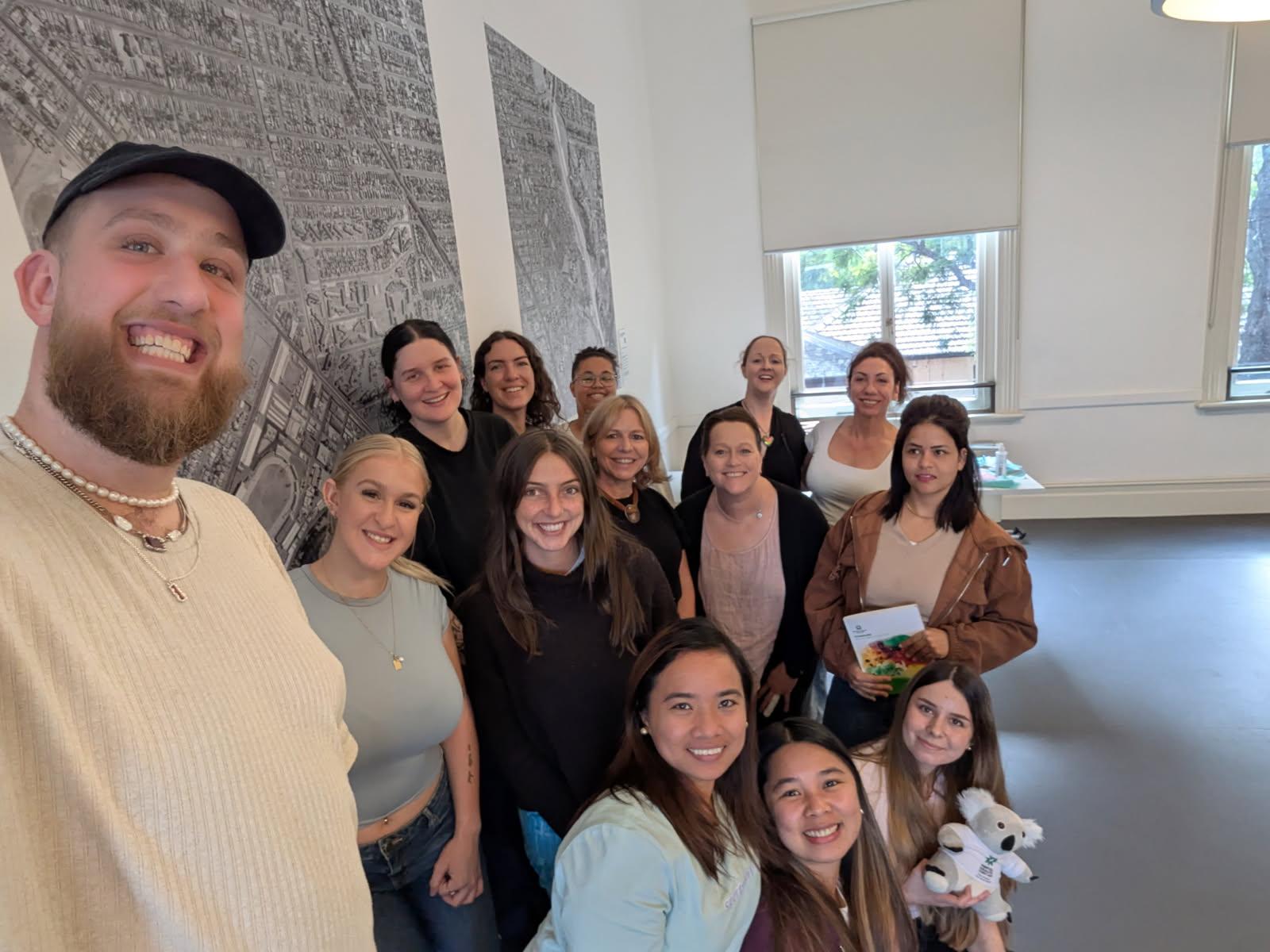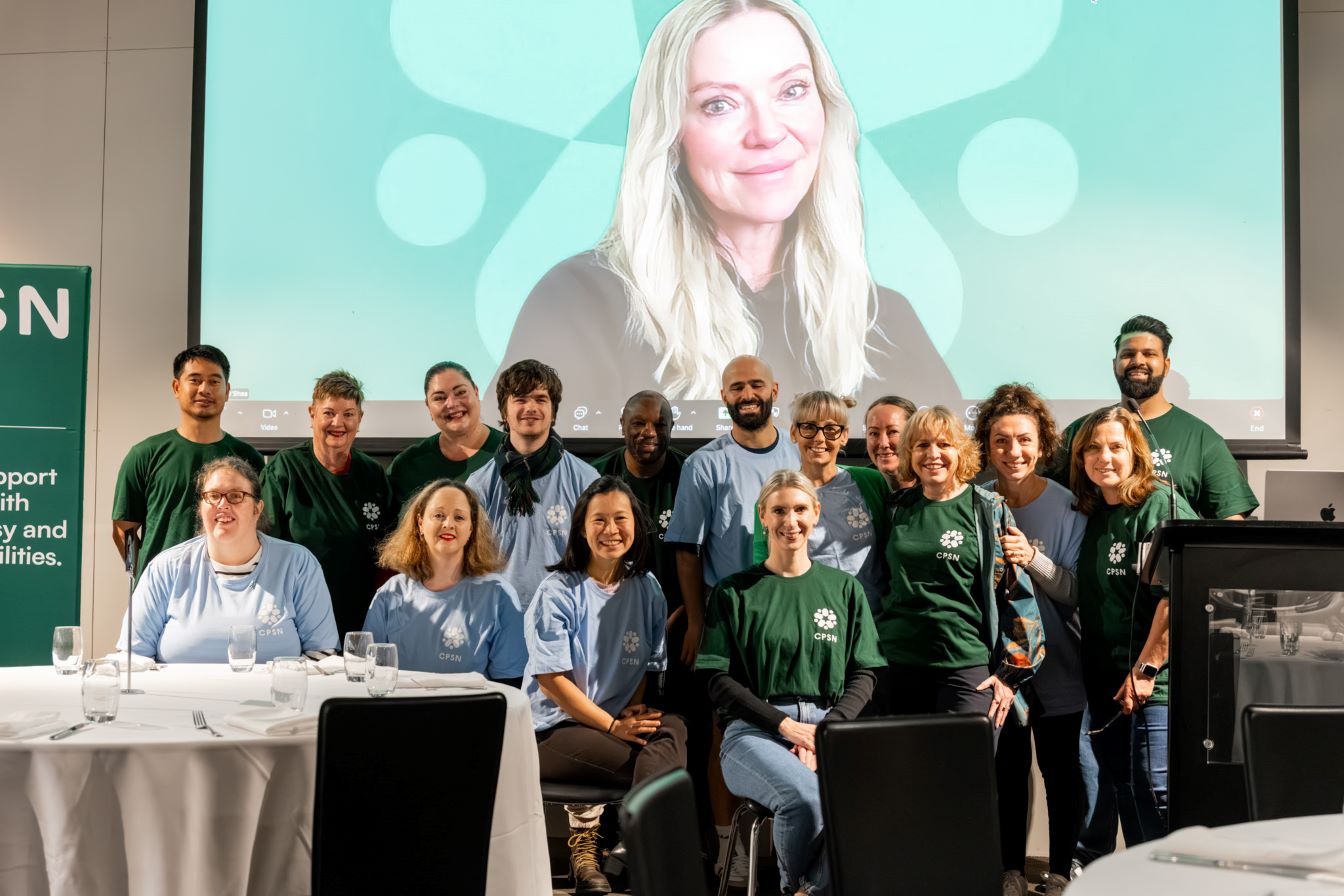This week marks “R U OKAY?” day, a national campaign that raises awareness around suicide prevention, mental health issues, having the conversation that may change someone’s life and listening when someone needs that extra support.
Mental Health First Aid Matters at CPSN
As part of recognising the focus R U OK? Day brings to mental health, we also thought it fitting to acknowledge the fantastic work our CPSN Staff, Sharon Marendaz and Anna Perini have proudly (and quietly) been doing with facilitating our own accredited Mental Health First Aid courses.
It’s not just for one day of year that we take a moment to ask, “R U OK?” but all year round at CPSN, thanks to these two amazing women we’re all proud to have on our team.
They are always there helping to ensure that our staff, support workers and members feel well supported and equipped with the correct skills and knowledge around mental health to be able to recognise when someone may need to have a conversation with them around their own mental health issues.
Statistics to Shout about
To date, in the past two years, Sharon says she and Anna have both successfully trained 82 participants, consisting of office staff, support workers, and CPSN Members. 49 of these are our support workers.
“It's good to know we have accredited MHFA’s on our frontline to recognise the signs and symptoms of someone struggling with their mental health and to be able to have a conversation and connect them to professional resources if needed.”
The key statistics surrounding Mental Health first aid and it’s links to disability was also a key factor in why Sharon and Anna are both so passionate about what they do, and why they enjoy delivering Mental Health First Aid Training to our community so much!

The following has been extracted from the Australian Institute of Health and Welfare:
· Mental health conditions can be both a cause and an effect of disability, and often involve activity limitations and participation restrictions beyond the ‘core’ areas of communication, mobility and self-care – for example, in personal relationships.
· Almost 1 in 2 (48%) people with severe or profound disability, and 37% of people with other forms of disability, self-reported anxiety disorders such as feeling anxious, nervous or tense, in the 2022 NHS. This compares with 14% of people without disability (AIHW analysis of ABS 2023).
· An estimated 41% of people with severe or profound disability self-reported that they had mood (affective) disorders such as depression, compared with 29% of people with other forms of disability, and 7.3% of people without disability (AIHW analysis of ABS 2023).
· Self-reported psychological distress is an important indication of the overall mental health of a population. Higher levels of psychological distress indicate that a person may have, or is at risk of developing, mental health issues.
· Adults with disability are more likely to experience high or very high levels of psychological distress than adults without disability – 28% compared with 6.8% of those for whom the distress score is known (Figure 2). This is particularly true for adults with severe or profound disability (46% of those for whom the distress score is known) (AIHW analysis of ABS 2023). Note, the psychological distress score was not known for 13% of adults with severe or profound disability.
Our Staff Reflections about Mental Health
“R U OK Day....This day is about more than raising awareness...it’s about taking the time to really check in with the people around us, to listen without judgement, and to remind one another that support is always there. Sometimes the smallest conversation can make the biggest difference.”
– Kellie O’Shea, CEO
“R U Okay? Day reminds us to never judge, and to always approach people with compassion, including ourselves - you never know what someone is going through. Having the willingness and patience to ask are you okay and open the way for an honest conversation is the essential first step to ensuring people feel heard, supported and validated. Each honest conversation contributes to breaking down the stigma and shame that is still often felt around mental health challenges.”
- Elizabeth Risdale,Customer Service Officer
“R U OK? day not only raises awareness about mental health, it helps reduce stigma by encouraging open conversations about struggles that often go unnoticed in the business of our individual lives."
- Nettie Herselman, Acting General Manager, Shared Services
“R U OK? Day reminds us that all that "It's ok to not be okay," and to check in on our loved ones and friends regularly - even if it's a text, or a quick phone call. You never know what they might be going through. To know that someone is there for them may bring them needed comfort and reassurance they are not alone. A single conversation can change someone's life or mindset completely.
- Alison Hibbert, Marketing Officer
“It's an important reminder to pause from busyness of life and genuinely check in with the people around us. A small conversation can make a big difference.
- Rebecca Smallchua, Marketing
Top Tips for keeping your Mental Health in check
With today’s fast-moving pace of life, and the expectation to “always be on” we can all sometimes have the tendency to not stop and take time out for ourselves, particularly when it comes to mental health.
We are reminded of a few key things from a previous colleague, Amy Seeary. Here are her practical tips for navigating your mental health, and you can read more from Amy's original post here.
1. Prioritise your Mental Health
2. Have a Self-Care plan
3. Practice Self-Compassion
4. Reach out for help
5. Practice Gratitude
6. Be Mindful or try Mindfulness activities
If you need support, remember, we're always here to help. If you have any mental health tips you’d like to share with us, you can let us know via our socials. You can call us on (03) 9478 1001 or email cpsn@cpsn.org.au

Marketing Officer
CPSN




